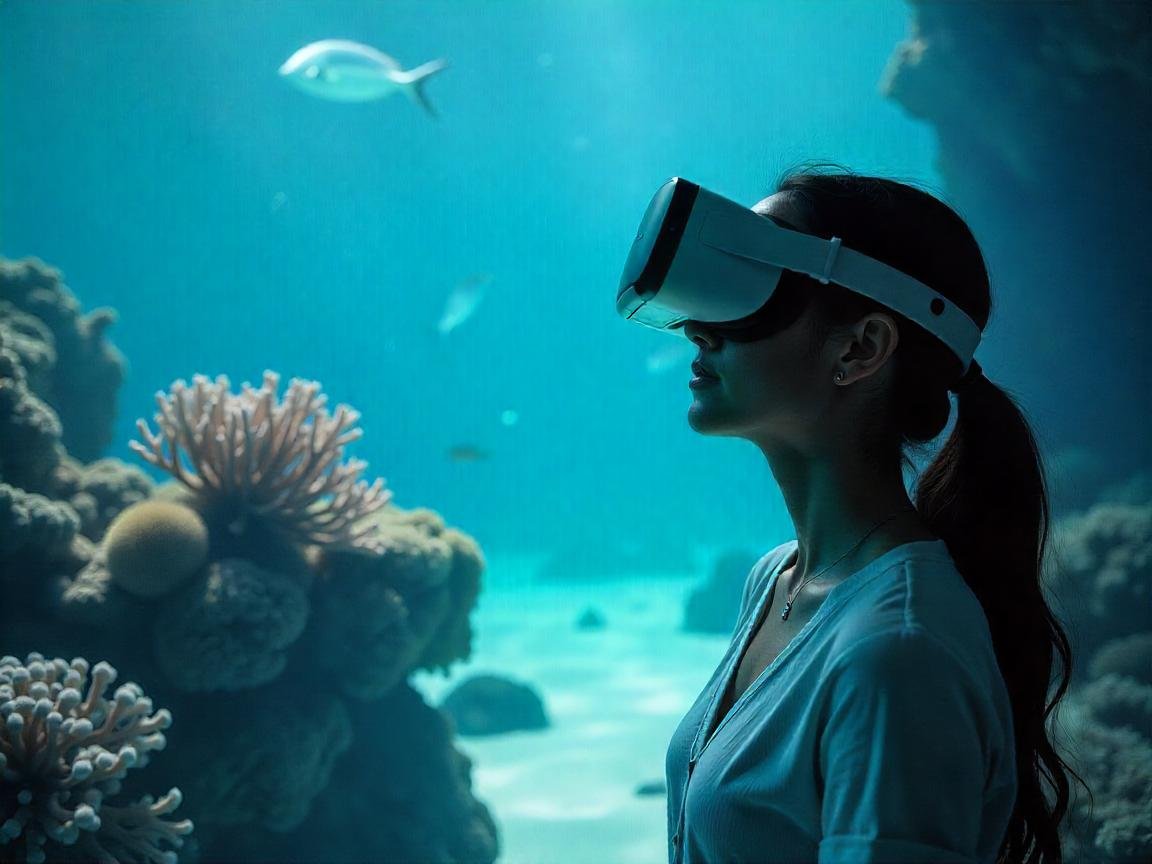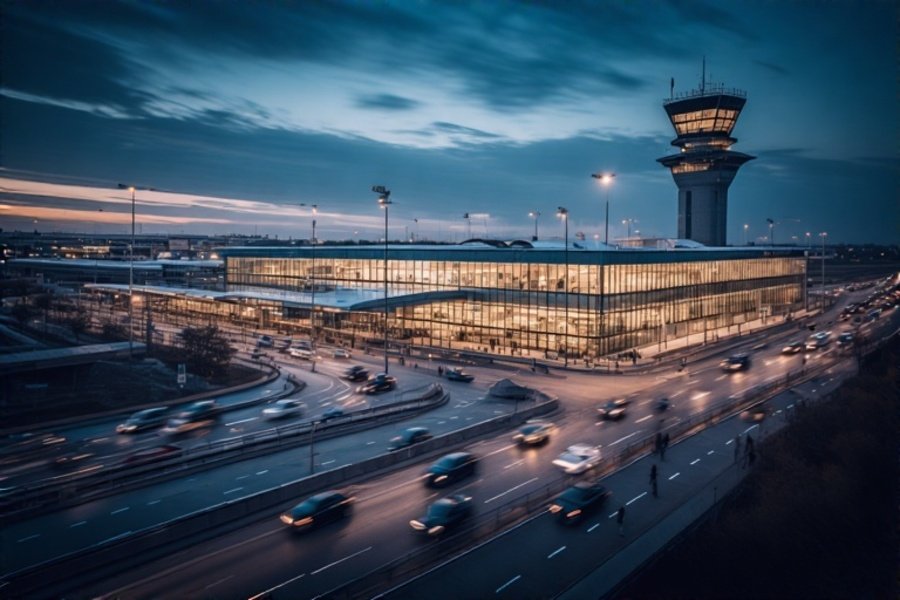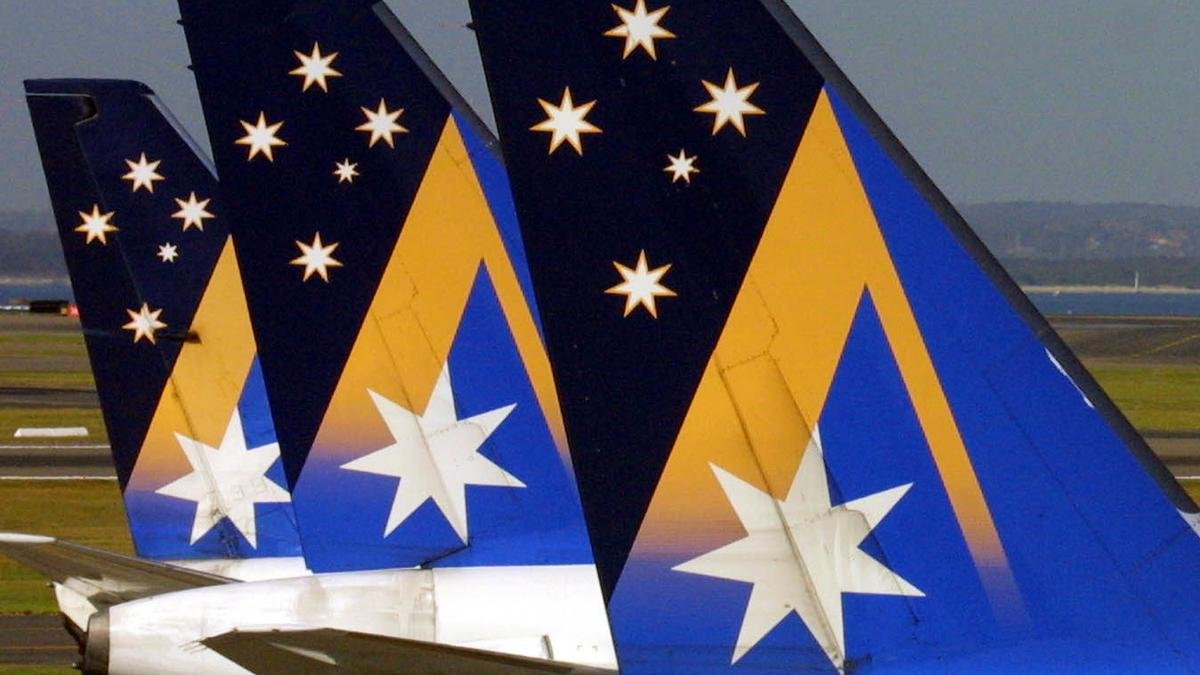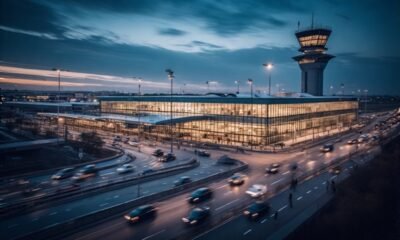AI in Travel
Malaysia Unveils Smart AI Tourism Melaka to Revolutionize Visitor Experiences with Cutting-Edge Technology

Thursday, July 17, 2025
In a bold move to transform its tourism landscape, the state of Melaka is preparing to roll out the Smart AI Tourism Melaka initiative by September 2025. This cutting-edge program integrates artificial intelligence to elevate the tourism experience, making it more engaging, interactive, and accessible for visitors. With a focus on digital innovation, the initiative is poised to enhance Melaka’s reputation as a forward-thinking tourist destination while strengthening the local tourism ecosystem.
A New Era for Tourism in Melaka
The Smart AI Tourism Melaka initiative is designed to provide tourists with an enhanced way to explore the state’s rich cultural heritage, historical landmarks, and modern attractions. The program leverages AI technology to deliver a more personalized and seamless travel experience, ensuring that visitors can easily navigate and discover the best of what Melaka has to offer. This initiative will act as a virtual tour guide, offering interactive content in multiple languages to cater to the diverse needs of international visitors.
Key features of the initiative include:
- AI-powered Assistance: Tourists will have access to a virtual guide that can assist with finding information on various attractions, providing details in multiple languages.
- Interactive Content: Unlike traditional signage, the AI system allows for real-time, two-way communication, offering an immersive experience with enriched content.
- QR Code Integration: The use of QR codes will enable users to scan and translate content instantly, enhancing their understanding of the cultural and historical significance of various sites.
The goal is to provide visitors with a more personalized, engaging experience that is accessible and informative. By using artificial intelligence tourism solutions, Melaka hopes to attract a wider range of tourists, including those who are tech-savvy and looking for more innovative ways to explore the city.
Strengthening Melaka’s Digital Tourism Infrastructure
The Smart AI Tourism Melaka initiative is part of a broader strategy to boost digital tourism across the state. This strategy aligns with the government’s efforts to improve connectivity and infrastructure, ensuring that Melaka remains a competitive destination in the digital age. Chief Minister Datuk Seri Ab Rauf Yusoh highlighted the significance of the initiative, noting that it will not only make the tourism experience more convenient but also enhance the overall accessibility of the state’s attractions.
Melaka’s robust telecommunications infrastructure supports this project, with the state already achieving impressive network coverage:
- 99.97% 4G coverage in populated areas
- 89.7% 5G coverage in key areas
This strong connectivity ensures that the Smart AI Tourism Melaka initiative will operate smoothly, offering high-speed internet and reliable digital services to tourists.
The state government has ambitious plans for the future, targeting 100% 4G and 5G coverage in all populated areas by 2027. This commitment to connectivity will further bolster Melaka’s position as a leader in Melaka digital tourism and ensure that tourists can fully benefit from the technological advancements on offer.
Partnerships Driving Innovation
A crucial element of the Smart AI Tourism Melaka initiative is the collaboration between the public and private sectors. To bring this project to fruition, Melaka ICT Holdings Sdn. Bhd. (MICTH) has partnered with major telecommunications companies such as Rohas Euco Industries Berhad, Maxis Broadband Sdn. Bhd., and U Mobile Sdn. Bhd. These partnerships will ensure that the necessary technological infrastructure is in place to support the AI-powered tourism system.
These collaborations are designed to provide tourists with the best possible experience, incorporating interactive tourism guides and other digital tools to enhance their visits. Through these efforts, Melaka aims to create a tourism environment that is not only more accessible but also more interactive and enjoyable.
What This Means for the Future of Tourism
The introduction of the Smart AI Tourism Melaka initiative is a significant step forward in the state’s effort to modernize and innovate its tourism sector. By integrating tourism experience technology and artificial intelligence, Melaka is setting the stage for a new era of travel, where technology enhances every aspect of the visitor journey. The initiative will also serve as a model for other regions looking to incorporate AI into their tourism offerings.
The potential benefits of this initiative include:
- Improved Visitor Experience: Tourists will have easy access to information and personalized recommendations, making their trips more enjoyable and enriching.
- Increased Accessibility: With multilingual content and interactive features, the program will be accessible to a global audience, breaking down language barriers and enhancing communication.
- Stronger Tourism Economy: By attracting a tech-savvy audience, Melaka stands to see an increase in tourism numbers, contributing to the growth of the local economy.
As this initiative unfolds, it is expected to position Melaka as a leader in the digital tourism space, showcasing the power of AI-powered tourism solutions in transforming how people explore new destinations.
Conclusion: A Smarter Future for Melaka’s Tourism
The Smart AI Tourism Melaka initiative represents a bold step toward the future of tourism, integrating the latest in digital and AI technology to offer a truly modern experience. By combining historical and cultural exploration with cutting-edge technology, Melaka is set to become a hub for innovative tourism. This project will not only enhance the experience for visitors but also strengthen the state’s position as a forward-thinking leader in artificial intelligence tourism and digital tourism. As the initiative moves forward, Melaka is setting the stage for a future where technology and tradition seamlessly merge, offering tourists an
AI in Travel
US Transforms Travel Experience with New AI Powered TSA Solutions, Ushering in a Smarter Era of Security: What You Need to Know

Monday, July 28, 2025
The US is paving the way for a more intelligent approach to airport security with AI tools developed by the TSA. By leveraging new technologies such as AI, automation, and robotics, the TSA hopes to make the security process faster and safer than ever. This revolutionary move will bring faster, safer and more efficient travel to passengers across the country. Here’s what to know about these seismic changes.
The Motivation Behind the Shift
Airports across the United States have been facing growing pressure as air travel continues to expand. With millions of passengers traveling daily, security lines have become longer, and wait times have been increasing. For the TSA, this situation has created a need for significant change. To address these challenges and improve security procedures, the TSA is turning to technological solutions that can enhance efficiency while ensuring the highest standards of safety.
The implementation of AI and automation aims to eliminate many of the inefficiencies in the current system. By using cutting-edge technologies, the TSA hopes to reduce the time passengers spend at checkpoints, enhance the detection of security threats, and allow agents to focus on more complex aspects of screening.
How AI and Automation Will Revolutionize Security Screening
The new TSA vision is centered around incorporating AI-driven threat detection systems, robotic assistance, and automated baggage screening. Traditional security systems often rely on human operators to manually inspect images from X-ray machines, which can be time-consuming and prone to error. AI, however, offers the ability to quickly and accurately assess large volumes of data from security scans, identifying potential threats in real time. This will not only enhance the accuracy of threat detection but also make the process much faster.
Alongside AI, automation will be implemented to handle routine tasks. For example, robotic systems can assist in screening carry-on luggage and guiding passengers through the security process. This will free up TSA staff to focus on more critical tasks, like ensuring the safety of travelers and responding to potential security risks. As a result, the overall screening process will become more efficient, reducing long queues and wait times that have plagued passengers in the past.
The Benefits of AI-Driven TSA Security
The integration of AI and robotics promises to bring multiple advantages for both passengers and airport staff. One of the most notable improvements will be the reduction in wait times. With faster screening powered by AI, passengers will experience less time spent in lines, creating a smoother and more stress-free journey through security checkpoints. This will be especially beneficial during peak travel periods when airports are crowded.
Moreover, AI will enhance the precision of security checks. The technology’s ability to analyze data in real-time means potential threats can be identified and addressed more effectively, helping TSA agents to prevent dangerous items from boarding flights without disrupting the flow of passengers.
Additionally, the automation of certain security tasks will allow TSA agents to concentrate on more complex responsibilities, such as managing critical security situations and providing customer service. This shift is expected to improve overall airport operations and employee satisfaction.
Addressing Concerns: Job Impact and Data Privacy
While the TSA’s use of AI and automation in security has been met with excitement, some concerns have been raised about the potential displacement of jobs. With robots and automated systems taking over routine tasks, there is a worry that TSA personnel may be replaced. However, TSA officials stress that the goal is not to eliminate human workers but to enhance the role of security agents by enabling them to focus on higher-level tasks that require judgment and experience.
Additionally, as AI-driven solutions take a central role in security, data privacy concerns have also surfaced. Passengers’ personal and biometric information may be collected during the security process, prompting questions about how this data is used and stored. TSA officials have assured the public that strict data protection protocols will be in place to safeguard passenger privacy, but these concerns will need to be monitored closely as AI solutions become more integrated into the process.
The Path Forward: A More Secure and Efficient Future
AI in TSA security is just the start of the entire transformation of the aviation industry. And as these technologies continue to develop, travelers can look forward to even more efficient and intelligent security procedures to finally help us all out at the airport. The shift towards automation and AI may signal the beginning of a new era in the operations field of airports, where technology becomes a complement for human expertise, leading to a more efficient travel experience.
Over the next few years, TSA will be rolling that technology out to more airports nationwide so travelers have easier and more convenient options for ensuring their security while making their way to their destination. AI in integration with robotics will change the shape of airport security in future – it will be smarter, faster and more dependable – with journey that is less-inconvenient.
At the end of the day, the TSA’s effort to support innovation and technology as it applies to air travel is an important step toward responding to the dynamic needs and changes that regularly rock the aviation industry. And as these AI-based advances transform the face of airport security, both passengers and personnel will experience a more secure, timely and stress-free trip.
AI in Travel
How Is Consumer-Driven AI Innovation Radically Transforming the Future of the Global Travel Industry and What Critical Steps Must Companies Take Today to Adapt, Evolve, and Thrive in This Accelerating Digital Era? Here’s Everything You Need to Understand and Prepare for What’s Next

Monday, July 28, 2025
The Road Ahead: Evolve or Fall Behind
At a pivotal event in Barcelona, industry professionals pointed out that the rapid rise of artificial intelligence (AI) isn’t something approaching—it’s already here. Its influence is being felt in the hands of individual users rather than within traditional corporate or governmental circles. Experts warned that travel businesses that fail to adapt swiftly and meaningfully risk falling behind as the global travel landscape continues to shift. It was emphasized that while embracing AI is essential, thoughtful implementation is even more critical. Companies must remain bold, flexible, and deeply connected to how real people use technology in their daily lives.
Those leading voices conveyed a collective sense of urgency, not panic, indicating that companies that are willing to evolve in step with technological progress will be more likely to thrive rather than merely survive. What was stressed above all is this: now is the time to act.
Actionable Insights for the Travel Sector
During the sessions in Barcelona, several important takeaways were offered for companies operating within the travel space. The insights were grounded in real-time consumer behavior and the growing impact of AI:
- AI development is no longer led by institutions—it’s consumer-driven.
- Travel businesses must adopt flexible, forward-thinking approaches.
- The value of travel must now prioritize authentic experiences over routine logistics.
- A culture of digital exploration and adaptability is essential.
These ideas underscored a broader truth: the pace of change in technology, particularly in AI, is not slowing down. It is continuous, disruptive, and powered by users themselves. Businesses that harness this energy through strategic foresight and cultural agility will be far better positioned to lead.
Responsibility Must Go Hand-in-Hand with Innovation
The event didn’t solely revolve around AI’s capabilities—it also highlighted what AI should do. As travel companies integrate smarter systems into their customer journeys, they’re being called to prioritize ethical choices alongside technological ones.
The shift toward AI means massive quantities of personal data are now involved in decision-making and travel planning. With that, travel providers were urged to:
- Safeguard the human element in every trip.
- Promote transparency and fairness in algorithm-based systems.
- Design experiences that are authentic and respectful.
It was highlighted that the most successful travel organizations will not necessarily be those that are the first to launch AI tools, but those that implement them ethically and in alignment with human values. The emphasis was on crafting real experiences, not just efficient ones.
A New Kind of Travel Experience for the World
As AI becomes more integrated into everyday life, it’s already changing how global travelers approach their journeys. According to discussions in Barcelona, the transformation is happening across various touchpoints in real time. These changes include:
- Highly personalized itineraries created through AI, removing the need for manual trip planning.
- Real-time assistance via chatbots and voice-enabled tools, enabling travelers to resolve issues instantly.
- Intelligent booking systems that adjust based on user behavior, providing dynamic pricing and customized offers.
While these advancements bring efficiency and convenience, they also introduce complex questions regarding data privacy, digital consent, and cybersecurity. Travelers are being given more control, but they must also become more cautious. It was advised that a balance must be struck between embracing intelligent systems and safeguarding one’s digital footprint.
Reevaluating the Purpose of Travel in the AI Era
Speakers at the gathering encouraged participants to reflect on a deeper question: What does travel mean when AI handles most of the process? If machines manage bookings, maps, and even real-time conversations, what’s left for the traveler?
It was widely agreed that technology cannot replace emotion, spontaneity, or human connection. These are the elements that make travel memorable and transformative. In response to increasing automation, the travel sector was urged to shift focus from logistics to meaningful, culturally rich, and human-centered experiences.
As AI makes travel easier and more accessible, companies must take responsibility for ensuring it doesn’t become impersonal. The future of travel lies not in moving people from point A to B faster, but in offering enriching experiences that resonate long after the journey ends.
Staying Relevant in an Accelerating Tech Landscape
One recurring concern voiced in Barcelona was the unrelenting speed at which AI is evolving. Attendees were told that by the time a company implements and launches a new AI tool, newer, more advanced versions may already be available. This makes it challenging for companies to keep up.
To remain competitive and responsive in this environment, it was recommended that organizations follow a two-pronged approach:
- Adopt and integrate existing AI technologies that align with current goals and operations.
- Simultaneously, invest in teams or leaders focused solely on emerging AI trends, allowing for continuous awareness and quick adaptation.
This balance helps companies avoid stagnation. It means operating efficiently today while maintaining a clear vision of tomorrow. The phrase often repeated during these sessions was that organizations must keep “one foot in the future” at all times.
The Rise of Consumer-Led Innovation
A central point that emerged from the discussions in Barcelona was the idea that innovation is now being led by the consumer, not by corporations or research labs. Regular travelers and tech-savvy individuals are actively experimenting with AI tools to enhance how they travel—sometimes in ways that large companies had not anticipated.
Whether it’s through creating personalized travel plans, solving problems through digital assistants, or using AI to explore destinations before visiting, consumers are setting new standards. Businesses are no longer at the forefront; they are reacting to what users are already doing.
For the travel industry, this means abandoning rigid models and embracing adaptive, fluid systems. Companies were advised to build environments that reward creativity, tolerate risk, and encourage constant learning.
A Major Departure from the Traditional Innovation Path
In the past, technological revolutions often began in military or government sectors, slowly made their way into private industry, and eventually reached consumers. However, AI has flipped that model entirely. In today’s landscape, individuals are using AI before many corporations have even begun full-scale implementations.
This bottom-up shift was described as highly unusual but powerful. People around the globe are independently utilizing AI for trip planning, content generation, language translation, and real-time support. These uses are becoming more creative and personalized, pushing companies to reassess how they innovate.
Industry professionals agreed that the old hierarchies of innovation are collapsing, making way for a more democratic, consumer-led evolution.
Beginning of a New Era: How AI is Changing the Face of Travel
In Barcelona, during a high-level industry gathering, the impact of artificial intelligence on travel took center stage. The conversation wasn’t just about technology—it was about how the adoption of AI is unlike anything seen before.
Unlike past innovations that trickled down from elite labs and institutions, AI is taking root in everyday life first. This reversed adoption curve is redefining how businesses engage with travelers. For those in tourism, it means looking outward toward the behaviors and needs of the consumer, rather than relying solely on internal development.
Companies were encouraged to accept that innovation is no longer linear or controlled, and instead, it is messy, fast-paced, and driven by end-users. This demands an entirely new mindset—one that welcomes rapid change, continuous adaptation, and human-first design.
Final Thought
The ideas shared in Barcelona revealed a significant inflection point for the global travel industry. Artificial intelligence is not simply another tool—it is a transformative force that is altering how journeys are imagined, planned, and experienced.
Travel companies are being urged to rethink not just their operations, but their purpose. As AI accelerates, the message was crystal clear: the future will belong to those willing to innovate boldly, adapt constantly, and stay deeply connected to the human spirit that makes travel meaningful.
AI in Travel
Ansett Australia revived as AI-powered travel platform two decades after carrier’s collapse

The Ansett name “is back”, but not as Australians will remember the former airline.
Ansett Australia was once the country’s second-largest carrier but collapsed into administration after suffering financial troubles in 2001.
Its final flight was recorded early the following year.
Know the news with the 7NEWS app: Download today
Now, more than 20 years later, the brand is being revived not as an airline but as an AI-powered holiday booking platform called Ansett Travel.
Melbourne-based entrepreneur Constantine Frantzeskos said it was designed to be a “hyper-personalised” travel agent that suggests trips and itineraries based on your preferences, calendar events and budgets.
“I didn’t just acquire a lapsed trademark and domain, I resurrected trust embedded deep in collective memory,” Frantzeskos said on Monday.
“The original Ansett served Australians beautifully for 65 years before collapsing in 2002, leaving a void in reliability and brand warmth.
“I believe that legacy still matters, and that it’s deserving of being reimagined for modern travellers.
“Ansett Travel isn’t about replicating the past, it’s about re‑engineering it through AI as the core, not as an afterthought.”
What Ansett Travel will offer
Frantzeskos has previously worked with Emirates, Dubai Tourism and Visit Victoria, and this time partnered with Victorian travel start-up Travlr.
He said the new platform is “like the Costco of travel”.
It is open to everyone “but if you want the really good stuff” — flights, hotels and holidays at near-wholesale prices — you will need to join Ansett VIP, he said.
An Ansett VIP membership is $99 a year.
Not all AI features are up and running but Frantzeskos said plans for things like auto-generated itineraries, pre-trip alerts, and personalised loyalty experiences are on the cards.
“Today’s travel platforms are reactive,” he said.
“You search, compare, click. Ansett seeks to flip that model.
“It’s designed to anticipate when users need a break – school holidays, anniversaries, executive downtime, great weather for a weekend away – and offer options before you even think to ask.
“It’s not replacing human agents; it’s doing what scale, data and logic do best – with finesse, not friction.”
The website is already live and offering travel deals for destinations including Las Vegas, Bali, Tokyo and Athens.
Before its collapse, Ansett reportedly flew about 10 million passengers annually.
More than 16,000 jobs were lost as a result of the company’s downfall.
-

 Brand Stories1 week ago
Brand Stories1 week agoBloom Hotels: A Modern Vision of Hospitality Redefining Travel
-

 Brand Stories2 days ago
Brand Stories2 days agoCheQin.ai sets a new standard for hotel booking with its AI capabilities: empowering travellers to bargain, choose the best, and book with clarity.
-

 Destinations & Things To Do1 week ago
Destinations & Things To Do1 week agoUntouched Destinations: Stunning Hidden Gems You Must Visit
-

 AI in Travel1 week ago
AI in Travel1 week agoAI Travel Revolution: Must-Have Guide to the Best Experience
-

 Brand Stories3 weeks ago
Brand Stories3 weeks agoVoice AI Startup ElevenLabs Plans to Add Hubs Around the World
-

 Brand Stories2 weeks ago
Brand Stories2 weeks agoHow Elon Musk’s rogue Grok chatbot became a cautionary AI tale
-

 Destinations & Things To Do2 days ago
Destinations & Things To Do2 days agoThis Hidden Beach in India Glows at Night-But Only in One Secret Season
-

 Asia Travel Pulse3 weeks ago
Asia Travel Pulse3 weeks agoLooking For Adventure In Asia? Here Are 7 Epic Destinations You Need To Experience At Least Once – Zee News
-

 AI in Travel3 weeks ago
AI in Travel3 weeks ago‘Will AI take my job?’ A trip to a Beijing fortune-telling bar to see what lies ahead | China
-

 Brand Stories3 weeks ago
Brand Stories3 weeks agoChatGPT — the last of the great romantics













You must be logged in to post a comment Login